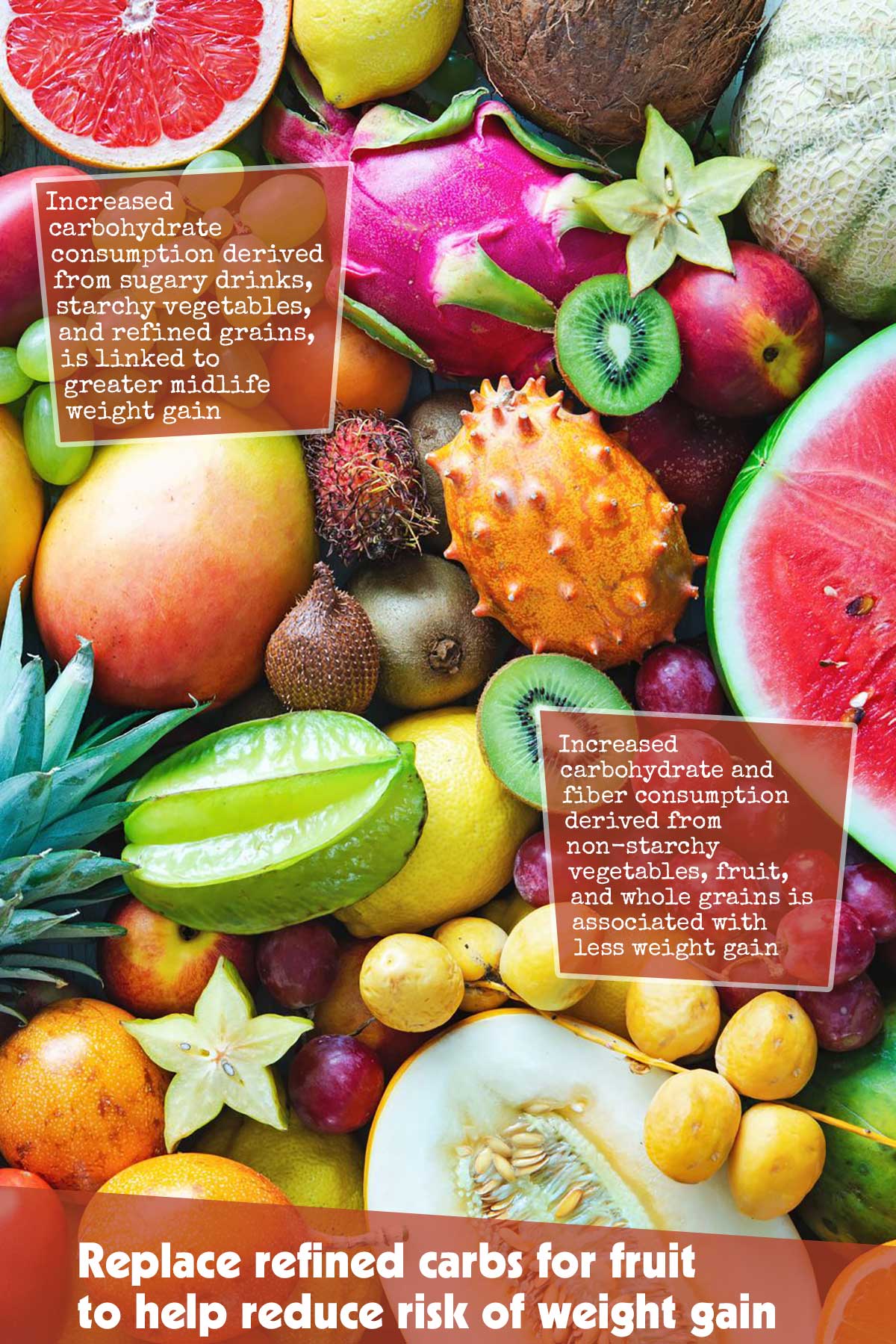According to a large study, increased carbohydrate consumption derived from sugary drinks, starchy vegetables, and refined grains, is linked to greater midlife weight gain, while increased carbohydrate and fiber consumption derived from non-starchy vegetables, fruit, and whole grains is associated with less weight gain.1✅ JOURNAL REFERENCE
DOI: 10.1136/bmj-2022-073939
The majority of these associations were more pronounced in individuals with higher body weight, emphasizing the importance of the source and quality of carbohydrates for long-term management of weight.
The influence that carbohydrates have on weight gain and obesity continues to be controversial, and limited research has looked at the association between carbohydrate consumption changes over time and long-term body weight changes.
To look into this further, these associations were examined at intervals of 4 years, over a follow-up of 24 years in total.
The results are determined from data involving 136,432 women and men 65 years or younger who participated in the Health Professionals Follow-Up Study, and Nurses’ Health Study 1 and 2.
At enrollment, all individuals were free of disorders such as chronic kidney disease, gastric problems, neurodegenerative disorders, respiratory disease, cardiovascular disease, cancer, and diabetes.
Questionnaires were completed on lifestyle, medical history, personal characteristics, and other factors related to health at the study onset, and every 2 to 4 years after that.
The results reveal that the individuals gained 1.5 kg every 4 years on average, which amounted to 8.8 kg over 24 years on average.
Among women and men, glycemic index and glycemic load increases, measuring the effects of different foods on blood sugar levels, were positively linked to weight gain.
For instance, a 100-gram per day increase in added sugar or starch was linked to 0.9 kg and 1.5 kg greater weight gain over 4 years, while a 10-gram per day increase in fiber was linked to 0.8 kg less weight gain over 4 years.
Increased carbohydrate consumption from fruit, whole grains, and non-starchy vegetables which include spinach, carrots, and broccoli was linked to less weight gain.
On the other hand, increased consumption of refined grains and starchy vegetables which include potatoes, corn, and peas was linked to greater weight gain.
Further analyses revealed that substituting carbohydrates derived from sugar-sweetened drinks, starchy vegetables, and refined grains with equivalent amounts of carbohydrates from non-starchy vegetables, fruit, and whole grains was linked to less weight gain.
The associations were more pronounced in individuals with excessive body weight compared to individuals with normal weight. The majority of these associations were also more pronounced in women.
This was an observational study, therefore cause can’t be established, and there were some limitations, which included participants self-reporting carbohydrate consumption estimates as well weight results, and potential dietary measurement errors.
This was however a large study making use of recurring dietary evaluations and validated questionnaires over an extended follow-up period that spanned the significant period of midlife weight gain.




